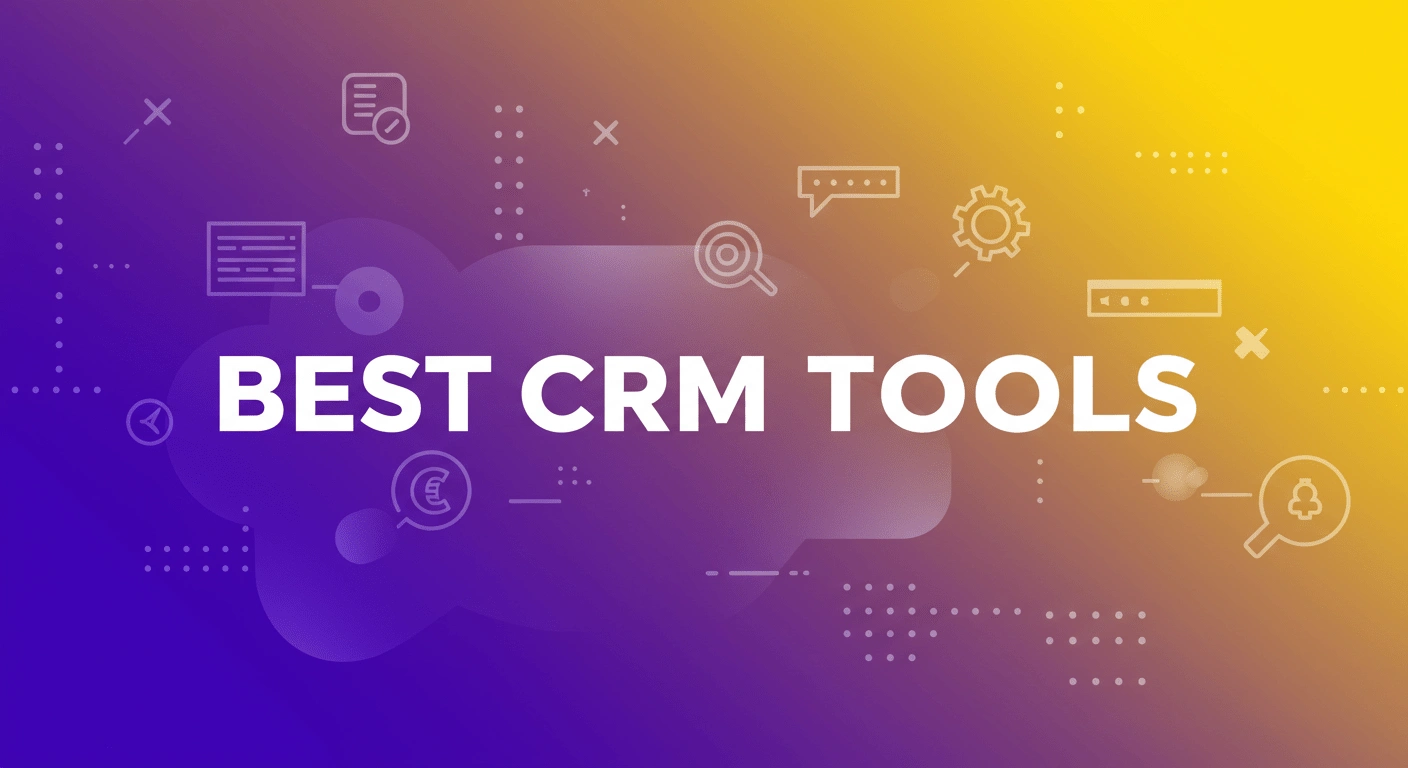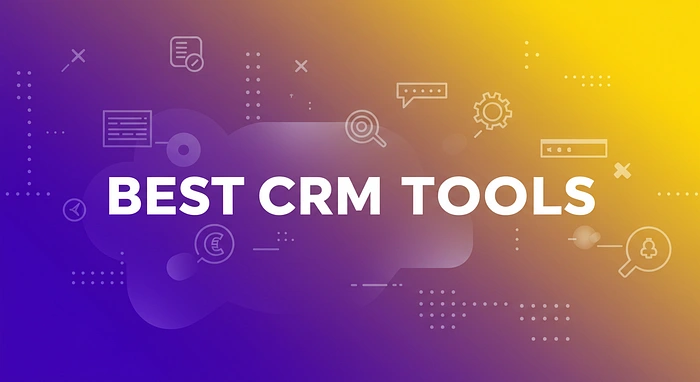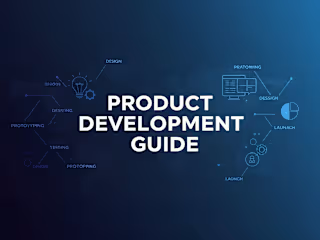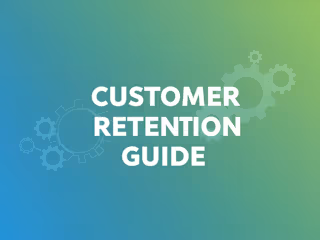Best CRM Tools to Streamline Communication

Best CRM Tools to Streamline Communication
9 min read
·
Oct 1, 2024

As we enter the final quarter of 2024, Customer Relationship Management (CRM) platforms have reached new heights of innovation and efficiency. What once started as basic contact management systems have evolved into sophisticated tools that leverage artificial intelligence, machine learning, and real-time data analytics. This evolution empowers businesses to forge deeper connections with customers, personalize experiences, and make informed decisions faster than ever before.
Potential users can now expect CRM solutions that offer seamless integration with a wide array of business applications, enhanced automation capabilities, and highly intuitive user interfaces. The focus has shifted toward providing predictive insights and proactive engagement strategies, allowing companies to anticipate customer needs and stay ahead of market trends. These advancements not only streamline internal processes but also significantly enhance customer satisfaction and loyalty.
In this rapidly evolving industry, selecting the right CRM platform is crucial for sustained growth and competitiveness. The tools we’ll discuss are at the forefront of this transformation, offering innovative features that address the complex demands of modern businesses. Whether you’re aiming to scale operations or deepen customer relationships, understanding these top CRM platforms is essential for navigating the complexities of today’s market.
Top CRM Platforms of 2024
Platform 1: Salesforce CRM
Salesforce remains a dominant force in the CRM market, offering a comprehensive cloud-based solution that caters to businesses of all sizes. With robust features encompassing sales, service, marketing, and analytics, Salesforce enables organizations to personalize customer experiences and optimize operations. Its AI component, Einstein, provides advanced analytics and automation, empowering businesses to make data-driven decisions and predict customer needs proactively.
Key Features:
Comprehensive Suite: Unified platform for sales, service, marketing, and analytics.
Einstein AI: Provides predictive analytics and automation for data-driven decisions.
Customization: Highly customizable with thousands of apps on the AppExchange.
Global Presence: Serving over 150,000 customers worldwide as of 2023.
Notable Data:
Market Share: Holds approximately 19.8% of the global CRM market share (Statista, 2023).
Revenue: Reported $26.5 billion in revenue for the fiscal year ending January 31, 2023.
Platform 2: Microsoft Dynamics 365
Microsoft Dynamics 365 integrates CRM and ERP capabilities into a suite of intelligent business applications.
Key Features:
Unified Platform: Combines CRM and ERP functionalities.
Seamless Integration: Connects with Azure, Microsoft 365, and LinkedIn.
AI and Analytics: Advanced tools like Customer Insights for data-driven engagement.
Scalability: Flexible solutions suitable for enterprises of various sizes.
Notable Data:
Market Position: Holds approximately 3% of the CRM market share (Gartner, 2023).
User Base: Widely adopted by enterprises leveraging existing Microsoft ecosystems.
Platform 3: HubSpot CRM
HubSpot CRM is known for its user-friendly interface and is particularly popular among small to medium-sized businesses.
Key Features:
Free Basic Version: Offers a robust free CRM solution.
Inbound Marketing Tools: Includes email marketing, SEO, and content management.
Integration Capabilities: Connects with over 500 tools including Gmail, Outlook, and Slack.
Analytics Dashboard: Real-time insights into sales activities and performance.
Notable Data:
Customer Base: Over 150,000 customers in more than 120 countries as of 2023.
Growth: Reported $1.7 billion in annual revenue for 2022.
Platform 4: Zoho CRM
Zoho CRM offers a cost-effective solution packed with essential features for improving customer relations.
Key Features:
AI Sales Assistant (Zia): Offers predictions, suggestions, and automation.
Multi-Channel Communication: Engage customers via email, social media, live chat, and more.
Customization: Tailor modules and layouts to fit business needs.
Integration: Part of the Zoho suite with over 40 integrated business applications.
Notable Data:
User Base: Serves over 250,000 businesses worldwide.
Affordability: Competitive pricing starting at $14 per user per month as of 2023.
Platform 5: Pipedrive
Pipedrive is a sales-focused CRM designed to simplify pipeline management for small to medium-sized businesses.
Key Features:
Pipeline Management: Visual sales pipelines for easy tracking.
Automation: Automate repetitive tasks to increase efficiency.
Activity Reminders: Keep track of follow-ups and scheduled activities.
Integrations: Compatible with over 300 apps including Zapier, Slack, and Mailchimp.
Notable Data:
Customer Base: Over 100,000 companies using Pipedrive as of 2023.
Recognition: Named a Gartner Peer Insights Customers’ Choice for Sales Force Automation in 2022.
Platform 6: Freshsales (by Freshworks)
Freshsales, developed by Freshworks, is a comprehensive CRM solution designed to streamline sales processes and enhance customer engagement.
Key Features:
AI-Powered Lead Scoring: Prioritize leads with AI-based scoring.
Built-in Phone and Email: Communicate with customers directly from the CRM.
Visual Sales Pipeline: Track deals with an intuitive drag-and-drop interface.
Customization: Tailor modules, fields, and workflows to match business needs.
Integrations: Connect with over 100 apps, including Zapier, Slack, and Mailchimp.
Notable Data:
User Base: Over 50,000 customers globally as of 2023.
Recognition: Named a Leader in the Gartner Magic Quadrant for Sales Force Automation in 2023.
Affordability: Offers a free trial and paid plans starting at $15 per user per month.
Platform 7: SAP Customer Experience (formerly SAP CRM)
SAP Customer Experience is a part of SAP’s suite of enterprise applications, offering robust CRM capabilities integrated with other SAP solutions.
Key Features:
Omnichannel Engagement: Connect with customers across various channels seamlessly.
Integrated Solutions: Combines sales, service, marketing, and commerce in one platform.
AI and Machine Learning: Utilize predictive analytics for customer insights.
Scalability: Suitable for large enterprises with complex needs.
Global Compliance: Features support for GDPR and other data protection regulations.
Notable Data:
Market Position: A leading CRM solution for enterprise-level organizations.
User Base: Trusted by thousands of businesses worldwide, including Fortune 500 companies.
Revenue: SAP reported total revenues of €27.84 billion in 2022, with the CRM segment contributing significantly.
Platform 8: Oracle CX Sales (Oracle CRM)
Oracle CX Sales is part of Oracle’s Customer Experience (CX) Cloud Suite, offering comprehensive tools for sales automation and customer insights.
Key Features:
Sales Automation: Streamline sales processes with intelligent automation.
Customer Data Management: Consolidate customer information for a unified view.
Predictive Analytics: Leverage AI to forecast sales and identify opportunities.
Integration: Seamlessly connects with other Oracle applications and third-party systems.
Mobile Accessibility: Access CRM features on-the-go with mobile apps.
Notable Data:
Market Presence: A significant player in the enterprise CRM market.
Customer Base: Used by thousands of organizations globally.
Innovation: Continuously investing in AI and machine learning capabilities.
Platform 9: SugarCRM
SugarCRM offers a flexible and customizable CRM solution designed to enhance customer relationships and drive business growth.
Key Features:
360-Degree Customer View: Comprehensive insights into customer interactions.
No-Touch Information Management: Automates data collection and entry.
Predictive Analytics: SugarPredict provides AI-driven forecasts and insights.
Customization: Highly customizable to fit unique business processes.
Deployment Options: Available as cloud-based or on-premises solutions.
Notable Data:
User Base: Over 2 million users in more than 120 countries.
Recognition: Received high customer satisfaction ratings on platforms like G2 Crowd.
Partners Network: Extensive global network of partners and resellers.
Platform 10: Insightly
Insightly is a unified CRM and project management platform tailored for small to medium-sized businesses.
Key Features:
Unified CRM and Project Management: Manage customer relationships and projects in one place.
Workflow Automation: Automate repetitive tasks to improve efficiency.
Advanced Reporting: Customize dashboards and reports for actionable insights.
Email Integration: Seamlessly integrates with Gmail and Outlook.
Mobile App: Access CRM data anytime, anywhere with mobile applications.
Notable Data:
User Base: Trusted by over 25,000 companies worldwide.
Integration Capabilities: Connects with popular apps like QuickBooks, Slack, and Mailchimp.
Affordability: Offers plans starting at $29 per user per month as of 2023.
Industry Trends Shaping the Future of CRM
The CRM industry is undergoing significant transformations, driven by technological advancements and evolving customer expectations. Here are some key trends shaping the future of CRM:
1. Artificial Intelligence and Machine Learning Integration
AI and machine learning are revolutionizing CRM platforms by automating routine tasks, providing predictive analytics, and personalizing customer interactions. These technologies enable businesses to:
Automate Data Entry: Reduce manual input errors and save time.
Predict Customer Behavior: Anticipate needs and offer proactive solutions.
Enhance Personalization: Deliver tailored content and recommendations.
Example: Platforms like Salesforce with Einstein AI and Zoho CRM’s Zia assist in data analysis and customer engagement strategies.
2. Omnichannel Customer Experience
Customers interact with brands across multiple channels — social media, email, phone, and in-person. CRMs are evolving to provide a seamless experience across all touchpoints, ensuring consistent communication and service quality.
Unified Customer View: Consolidate interactions from all channels into one platform.
Consistent Messaging: Maintain brand voice and messaging across platforms.
Real-Time Support: Offer immediate assistance through chatbots and live chat.
Insight: A PwC report highlights that 73% of consumers prefer brands with a seamless omnichannel experience.
3. Mobile CRM and Remote Accessibility
With the rise of remote work, mobile CRM access has become essential. Mobile CRMs enable teams to:
Access Data On-the-Go: Retrieve customer information anytime, anywhere.
Real-Time Updates: Sync data across devices instantly.
Enhanced Collaboration: Improve communication among dispersed teams.
Stat: According to Forbes, 65% of sales reps who adopt mobile CRM achieve their sales quotas, compared to 22% of those who don’t.
4. Enhanced Data Security and Privacy
As data breaches become more prevalent, CRMs are prioritizing security features to protect sensitive customer information.
Advanced Encryption: Secure data both at rest and in transit.
Compliance Support: Tools to help comply with GDPR, CCPA, and other regulations.
Access Controls: Define user permissions to limit data exposure.
Consideration: Businesses are increasingly choosing CRMs with strong security credentials to maintain customer trust.
4. Integration with Other Business Systems
Seamless integration between CRM and other business tools enhances efficiency and data consistency.
API Connectivity: Allows CRMs to connect with ERP systems, marketing automation, and customer support tools.
Unified Data Platforms: Break down data silos for a holistic view of operations.
Automated Workflows: Streamline processes across departments.
Example: Microsoft Dynamics 365 integrates CRM with Office 365 and other Microsoft services for a unified experience.
5. Customization and Scalability
Businesses require CRMs that adapt to their specific needs and can scale as they grow.
Modular Features: Add or remove functionalities as needed.
Custom Workflows: Design processes that mirror business operations.
Flexible Pricing Models: Options that fit various budget sizes.
Trend: The rise of low-code platforms enables businesses to customize their CRM without extensive coding knowledge.
How to Choose the Right CRM Platform for Your Business
Selecting the ideal CRM platform involves careful consideration of various factors to ensure it aligns with your business objectives and processes. Here’s a step-by-step guide:
1. Define Your Business Goals
Identify Key Objectives: Are you focusing on sales growth, improved customer service, or marketing automation?
Set Measurable Targets: Define what success looks like in terms of metrics like increased sales, customer retention rates, or lead conversions.
2. Assess Current Processes and Challenges
Map Out Workflows: Understand existing sales, marketing, and customer service processes.
Identify Pain Points: Determine where inefficiencies or bottlenecks occur.
3. Determine Necessary Features
Must-Have Features: List essential functionalities such as contact management, pipeline tracking, and reporting.
Advanced Capabilities: Consider AI features, automation, and integration needs.
User Experience: Prioritize platforms with intuitive interfaces to encourage user adoption.
4. Evaluate Integration Capabilities
Existing Tools: Ensure the CRM can integrate with your current software (e.g., email clients, accounting software).
Future Needs: Consider potential tools you may adopt later and check for compatibility.
5. Consider Scalability
Growth Plans: Choose a CRM that can accommodate business expansion.
User Limits: Check if the platform supports adding more users without significant cost increases.
Feature Expansion: Ability to add advanced features as your needs evolve.
6. Review Security Measures
Data Protection: Look for encryption standards, secure data centers, and regular security audits.
Compliance Requirements: Ensure the CRM supports compliance with relevant regulations.
Access Controls: Ability to set permissions and roles for different users.
7. Set a Budget
Total Cost of Ownership: Include subscription fees, implementation costs, training, and ongoing support.
Return on Investment: Estimate how the CRM will contribute to revenue growth or cost savings.
8. Research Vendor Reputation and Support
Customer Reviews: Read testimonials and case studies.
Customer Support: Evaluate the availability and quality of support services.
Vendor Stability: Choose a provider with a solid track record and financial stability.
9. Test Drive Potential Solutions
Free Trials: Utilize trial periods to assess usability and features.
Live Demos: Request demonstrations tailored to your business scenarios.
Pilot Programs: Implement the CRM with a small team to evaluate its effectiveness.
10. Involve Stakeholders
Gather Feedback: Include input from end-users, IT staff, and management.
Ensure Buy-In: Secure commitment from all levels to facilitate smooth adoption.
Conclusion: Navigating the CRM Landscape in 2024
The CRM landscape in 2024 is dynamic and rapidly evolving, presenting businesses with both opportunities and challenges. The integration of advanced technologies like AI, the emphasis on omnichannel experiences, and the focus on data security are reshaping how organizations interact with customers.
Choosing the right CRM platform is more than a technological decision; it’s a strategic move that can significantly impact your customer relationships and overall business success. By staying informed about industry trends and carefully assessing your business needs, you can select a CRM solution that not only meets your current requirements but also positions you for future growth.
As you navigate the plethora of options available, remember to:
Stay Customer-Centric: Choose tools that enhance the customer experience.
Prioritize Flexibility: Opt for solutions that can adapt as your business evolves.
Value Integration: Ensure seamless connectivity with other systems for unified operations.
Embrace Innovation: Leverage platforms that adopt the latest technologies to stay ahead of the competition.
Investing in the right CRM platform empowers your organization to build stronger relationships, improve efficiency, and drive revenue growth. As the business landscape continues to change, a robust CRM system will be an invaluable asset in achieving your strategic objectives.
Like this project
Posted Apr 27, 2025
The piece highlights the best tools available to help businesses optimize customer interactions and improve their CRM strategies in the coming year.









